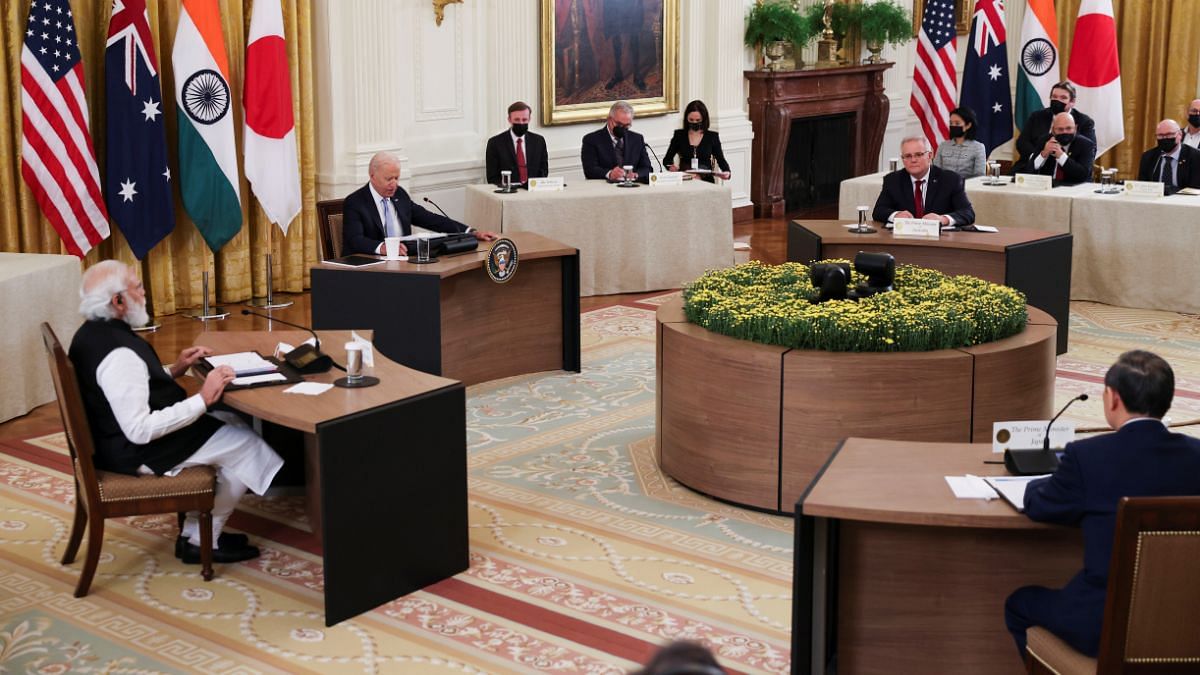New Delhi: India has pledged $7.5 million for cancer testing, screening, and diagnostics as part of the newly launched Quad Cancer Moonshot, a groundbreaking initiative to help end cancer in the Indo-Pacific region. It was announced by Prime Minister Narendra Modi on 22 September during his trip to the US to participate in the Quad Leaders’ Summit.
The Quad Cancer Moonshot is an extension of the US Cancer Moonshot initiative started in 2016. It aims to strengthen the overall cancer care ecosystem in the Indo-Pacific—comprising nearly 40 countries—by improving health infrastructure, expanding research collaborations, building data systems, and providing greater support for cancer prevention, detection, treatment, and care.
Under the initiative, India has committed to providing support for radiotherapy treatment and capacity building for cancer prevention in a number of countries.
Modi also announced that the Indo-Pacific countries will benefit from the supply of 40 million doses of cervical cancer vaccine from India under the international vaccine alliance GAVI and Quad programmes. Cervical cancer, considered a largely preventable disease caused by human papillomavirus or HPV, continues to be a major health crisis in the region.
Additionally, the country has committed to sharing technical expertise in digital health through its National Non-Communicable Disease (NCD) portal. This is part of India’s $10-million commitment to support the World Health Organization (WHO)-led Global Initiative on Digital Health and includes offering technical support for the use of its National NCD portal, which tracks long-term population-based data on cancer screening and care.
Cancer specialists said the project would be beneficial for the region.
Dr Ravi Mehrotra, cancer researcher and founder of the Centre for Health Innovation and Policy, told ThePrint: “Both these initiatives will help countries in the region become aware of the best practices in this arena and learn from our experience in providing cost-appropriate, yet effective, tools for the prevention and early diagnosis of common cancers.”
Cancer Moonshot was launched by then US President Barack Obama in 2016, mainly to speed up scientific research on cancer, and Joe Biden, who was vice president at the time, was appointed to chair the taskforce.
More than two years ago, President Biden and First Lady Jill Biden restarted the programme to reduce the cancer death rate in the United States by at least half—preventing more than 4 million deaths—by 2047, and improving the experience of people who are touched by cancer.
Also Read: This experimental lung cancer drug outperforms blockbuster medicine Keytruda. But there’s a catch
Focus on cervical cancer
Cervical cancer, while preventable through vaccination and usually treatable if detected early, remains the third leading cause of cancer deaths among women in the Indo-Pacific region. On average, 150,000 women die due to cervical cancer in the region every year, according to details shared by the government.
It is estimated that fewer than one in 10 women have completed their HPV vaccination series and fewer than 10 percent have undergone screening.
Several countries in the region are plagued by challenges such as access to healthcare, limited availability of resources, and disparities in vaccination rates.
Through this project, Quad countries will work to address these gaps by promoting HPV vaccination, increasing access to screenings, and expanding treatment options and care in underserved areas.
In India, where cervical cancers are the second most common cancer among women after breast cancer, HPV vaccination, though available in the private market, has not been included in the government-run Universal Immunization Programme (UIP).
This is despite a recommendation by India’s top advisory body on vaccination, the National Technical Advisory Group on Immunization, to include the vaccine in the HPV and a pledge by the finance minister Nirmala Sitharaman in her Union budget this year to “encourage” it.
In response to a query by ThePrint at a media briefing last week, Union health minister J.P. Nadda had said that the government was “working on it”.
According to a report released this month by the WHO’s International Agency for Research on Cancer (WHO-IARC), in 2022, 127,526 women in India were diagnosed with cervical cancer, while 79,906 died because of it.
The country records nearly one-fifth of cervical cancer cases globally.
“We are hoping that the latest pledge by the country to work towards tackling cervical cancer in the Indo-Pacific region will also expedite the HPV vaccination’s launch in India,” said a senior scientist with the Indian Council of Medical Research-National Institute of Cancer Prevention and Research (NICPR), on condition of anonymity.
Sharing expertise on long-term cancer screening and care
India also plans to provide technical assistance to the Indo-Pacific region. This includes offering technical support for the use of its National NCD portal, which tracks long-term data on cancer screening and care.
Officials in the Union health ministry told ThePrint that a population-based initiative for prevention, control and screening for common NCDs—diabetes, hypertension and common cancers, oral, breast and cervical cancer—has been rolled out in the country since 2019 under the National Health Mission and also as a part of comprehensive primary health care.
Under the initiative, people above 30 years of age are targeted for their screening for hypertension, diabetes, and three common cancers—oral, breast and cervical cancer.
Screening of these NCDs is also an integral part of service delivery under the Ayushman Bharat-Arogya Mandirs, officials said. As per the estimates, nearly 30 crore individuals have been screened for three common cancers according to the data available on the portal.
“This is likely to help streamline data flow amongst the various stakeholders,” Mehrotra said.
(Edited by Sanya Mathur)
Also Read: Defence, clean energy & repatriation of antiques among key topics in Modi-Biden bilateral talks

